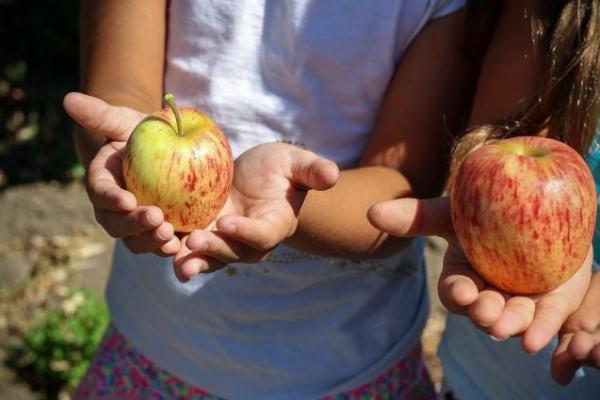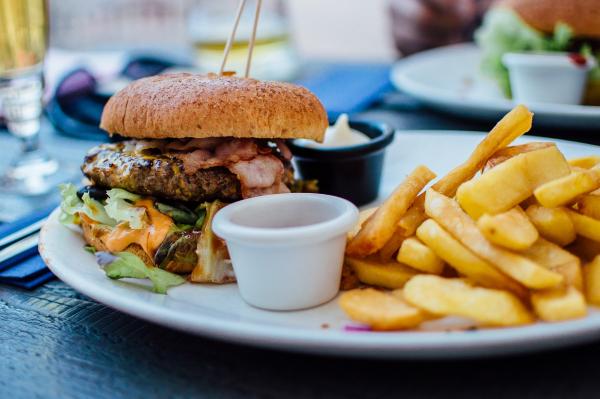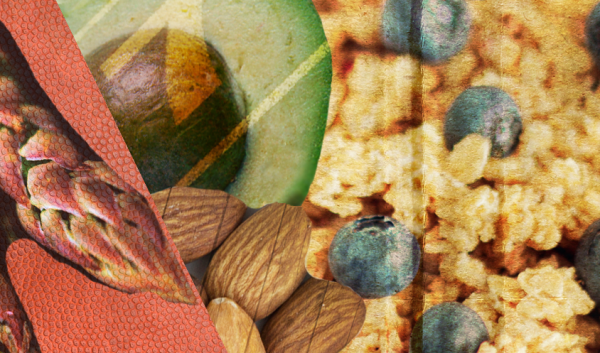News about nutrition and food is always a hot topic in the media, perhaps because the issues that surround food are both intensely personal and completely public. Few other topics connect with people in this way, making our translation of the latest research in nutrition science and policy that much more meaningful to the general public.
Even if every one of our research projects and activities this year didn't make the front-page news, they all made an impact in the world. From planetary health and personal health to entrepreneurship and events, here's what made our front page this year!

Quality of Diet for SNAP Participants
A study headed by Food-PRICE, a research group based at the Friedman School showed that the quality of diets for people using the SNAP program is still poor. For the 2003-2004 to 2013-2014 survey group, the average diet score among SNAP participants did not significantly improve.
Authors from the Friedman School: first author Fang Fang Zhang; co-first author Junxiu Liu, postdoctoral scholar; Parke Wilde; Jerold Mande
Kids, Cash, and Snacks
What determines how children decide to spend their cash on snacks? A new study shows that children’s experience with money and their liking of brands influenced purchase decisions – and that for some children, higher prices for unhealthy snacks might motivate healthier choices. The study is published in the journal Appetite.
Authors from the Friedman School: Sean Cash, visiting scholar Monika Hartmann

.jpg@itok=Ra9uaCL-)
Physical Activity & Older Adults
Adding 48 minutes of moderate exercise per week is associated with improvements in overall physical functioning and decreases in risks of immobility in older adults who are sedentary, finds a new study led by researchers at the Jean Mayer USDA Human Nutrition Research Center on Aging (USDA HNRCA) at Tufts University.
Author from the Friedman School: Roger Fielding (Director and Senior Scientist of the Nutrition, Exercise Physiology, and Sarcopenia (NEPS) Laboratory at the Jean Mayer USDA Human Nutrition Research Center on Aging)
Tufts Named Among Most Influential Institutions
Tufts University is among the top institutions in the world for influencing innovation, according to an analysis published as a supplement to Nature, a leading science journal.
Related faculty: Browse all faculty at the Friedman School
.jpg@itok=88m0xdyV)

Taxes on Sugar-Sweetened Beverages
Sugar-sweetened beverages (SSBs) are associated with obesity, diabetes, stroke and heart disease. As of June 2017, eight U.S. cities have enacted SSB taxes aimed at reducing consumption, and several other states and municipalities are considering them.
Authors from the Friedman School: Dariush Mozaffarian, Renata Micha
Analysis: Junk Food Tax is Legally Viable
An original analysis by researchers at New York University College of Global Public Health and the Friedman School of Nutrition Science and Policy at Tufts University finds that a federal tax on junk food is both legally and administratively feasible.
Authors from the Friedman School: Renata Micha, Parke Wilde, Yue Huang, Dariush Mozaffarian


Price Changes Could Save Lives
Changing the prices of seven foods, including fruits, vegetables and sugar-sweetened beverages, could reduce deaths due to stroke, diabetes and cardiovascular disease and address health disparities in the United States, finds a study led by researchers from Tufts University.
Authors from the Friedman School: Dariush Mozaffarian, José Peñalvo, Parke Wilde, Renata Micha, Frederick Cudhea
Food Choices and Climate Change
A study this year provides the latest, most comprehensive estimate of greenhouse gas emissions generated by U.S. consumer food purchases suggests that, if Americans directed their food purchases away from meats and other animal proteins, they could help reduce greenhouse gas emissions.
Authors from the Friedman School: Sean Cash, Rebecca Boehm, NG17, Parke Wilde

